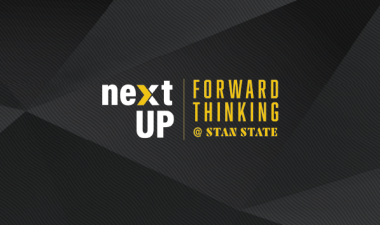Before a police officer’s knee took the life of George Floyd last May and set off nationwide protests and demands for change, Stanislaus State Associate Professor of Sociology Dana Nakano was working to establish a book club focused on social justice.
Pre-COVID shutdown, Nakano, who understood the work of previous activists began with reading and discussion, reached out to Carolina Alfaro, director of the Warrior Cross Cultural Center, for assistance. Alfaro had already heard from Laura Rocco, librarian for outreach and student engagement, who wanted to start a similar book club for students using graphic novels and poetry.
Alfaro brought the two together and asked Polet Hernandez, undocumented student services coordinator, to suggest book titles.
Their collaboration resulted in two book clubs: the Social Justice Book Club run jointly by Nakano, Rocco and the Warrior Cross Cultural Center and the Undocu Book Club Hernandez established.
Both groups began in the fall and continue this semester.
“We saw a lot of overlap between ideas, certainly the orientation around building greater awareness of social justice issues, and what steps the campus might be able to take to produce more equity on our campus as well as in the broader communities we all live in,” Nakano said.
The selected books reflect that ideal.
The Undocu Book Club is currently reading Jose Antonio Vargas’s “Dear America,” a series of essays about growing up in the U.S. after immigrating illegally from the Philippines.
“We chose his book because he brings a different perspective,” Hernadez said. “Often when you think undocumented, you think of the Latinx experience. That’s what we see in the media most often. He’s Asian, and I wanted to bring that Asian experience of undocumented immigrants.”
Last fall, the Undocu Book Club read “Children of the Land,” the memoir of poet Marcelo Hernandez Castillo, whose family illegally immigrated to the United States from Mexico when he was 5 years old.
Hernandez said all are welcome to participate in the Undocu Book Club. She holds healing circles exclusively for undocumented students, but the book club, which meets every other Thursday, is open to everyone.
“One of the most beautiful experiences throughout reading ‘Children of the Land’ and having conversations was healing, because we were able share our own experiences and how we were able to relate to the book,” Hernadez said. “I appreciated those who didn’t have the experience of being undocumented or immigrants, but were able to relate to the author, either by the sense of loss, sense of fear or sense of hopelessness that goes into that experience. Having these conversations with each other brought so much understanding.”
The Social Justice Book Club chose “How to be an Antiracist” by Ibram X. Kendi for its fall selection.
“Because of what was happening last summer with regard to Black Lives Matter and protests happening across the country, there was a sense among the four of us we needed to address that more directly,” Nakano said. “‘How to be an Antiracist’ was an accessible way to talk about the subject.”
This semester, the Social Justice Book Club is pivoting more toward Rocco’s original idea.
“I thought of a student book club specifically with graphic novels and poetry, two genres more fun and less intimidating for students assigned a lot of nonfiction, scholarly material,” Rocco said.
Collaborating with Alfaro, Nakano and Hernandez, Rocco, who came to Stan State in 2019 and has a passion for graphic novels, was able to realize her vision.
The Social Justic Book Club opened the 2021 spring semester reading “March, Book One” the first in the graphic novel autobiographical trilogy by John Lewis.
The next meeting is March 26 with discussion of “Hermosa,” a book of poetry by Salvadoran Yesika Salgado. The final book of the semester is the memoir “Asian American Dreams” by Helen Zia. That discussion is April 23. All are welcome to register.
Books are available for free for those interested in participating in any of the club discussions.
The clubs have left an impression on organizers.
“I have loved working with Caro, Polet and Laura,” Nakano said. “This a strong group that works together, and we get to pick books we want to read and talk about them. It’s a different dynamic from the classroom setting. People are there voluntarily, and it allows us to engage in a more informal setting.”
“One of my goals is to continue the conversation of undocumented folks and for them to feel validated,” Hernandez said. “The book club helped them feel a sense of belonging. They see staff and faculty join the book club because they want to learn, they want to help. That has helped the students so much. It gives me so much purpose. I know we’re touching lives with the stories we’re reading.”
It has touched Rocco.
“I’m a white person who’s not a member of any of the groups in the stories we’re discussing and reading about in these books,” Rocco said. “The joy of the book club is being exposed to things we otherwise wouldn’t have known about or thought to read.”


